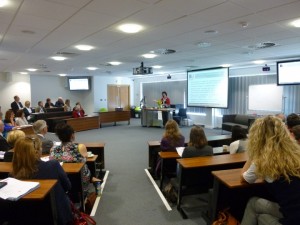 Bournemouth University Dementia Institute (BUDI) held its third open meeting at the university on 14th May, with this year’s theme being dementia friendly environments. The day was well attended by practitioners, family carers, the general public and people with dementia. It started with a lovely buffet lunch sponsored by Alzheimer Research UK, providing an opportunity for delegates to network and to browse the information stands hosted by themselves and BUDI Ph.D. students. The open meeting was formally opened by Professor Gail Thomas who praised the innovative work being carried out by the BUDI team. Delegates then heard presentations from Dr Fiona Kelly on dementia friendly design, Dr Jan Wiener on the use of eye tracking technology to explore navigation skills and difficulties, Kathrin Büter on using computer technology to support dementia friendly design in hospitals. This session closed with a presentation by architect Niall McLaughlin on his work with communities and older people to design care homes that meet everyone’s needs and are inspirational, therapeutic spaces. The final part of the day involved a question and answer session where delegates and presenters discussed some of the issues raised during the day including how to ensure that the concept of good design filters down to those commissioning, designing and using buildings that people with dementia also use. This successful event is sure to have got people thinking and sharing some of what they heard and we look forward to holding similar events in the future.
Bournemouth University Dementia Institute (BUDI) held its third open meeting at the university on 14th May, with this year’s theme being dementia friendly environments. The day was well attended by practitioners, family carers, the general public and people with dementia. It started with a lovely buffet lunch sponsored by Alzheimer Research UK, providing an opportunity for delegates to network and to browse the information stands hosted by themselves and BUDI Ph.D. students. The open meeting was formally opened by Professor Gail Thomas who praised the innovative work being carried out by the BUDI team. Delegates then heard presentations from Dr Fiona Kelly on dementia friendly design, Dr Jan Wiener on the use of eye tracking technology to explore navigation skills and difficulties, Kathrin Büter on using computer technology to support dementia friendly design in hospitals. This session closed with a presentation by architect Niall McLaughlin on his work with communities and older people to design care homes that meet everyone’s needs and are inspirational, therapeutic spaces. The final part of the day involved a question and answer session where delegates and presenters discussed some of the issues raised during the day including how to ensure that the concept of good design filters down to those commissioning, designing and using buildings that people with dementia also use. This successful event is sure to have got people thinking and sharing some of what they heard and we look forward to holding similar events in the future.
Category / Info Days
BUs Open Access Event
 Last Wednesday, BU hosted a sector-wide Open Access Event at the EBC. The day was a great success with attendees travelling from universities across the UK to hear keynote speaker Alma Swan and speakers from HEFCE, LSE Impact Blog, PLOS, University of Oxford and BU talk about Open Access, one of the key priorities for the sector at the moment.
Last Wednesday, BU hosted a sector-wide Open Access Event at the EBC. The day was a great success with attendees travelling from universities across the UK to hear keynote speaker Alma Swan and speakers from HEFCE, LSE Impact Blog, PLOS, University of Oxford and BU talk about Open Access, one of the key priorities for the sector at the moment.
Feedback from the event has been overwhelming positive with attendees finding the day extremely useful with lots of interesting discussion throughout the day. Over the next few weeks, we’ll be posting blogs summarising the key points from each of the presentations so keep your eyes peeled…
Using government administrative data for research?
On the 16th May the Welcome Trust will host a seminar exploring the results of the ESRC/ONS joint Dialogue on Data: Exploring the public’s views on using administrative data (government collected data) for research purposes. 
During October and November 2013, the Office for National Statistics (ONS) and the Economic and Social Research Council (ESRC) commissioned IPSOS Mori to undertake a public dialogue in seven UK locations to explore views on using government administrative data for research purposes.
The overall objectives were to explore public understanding and views of administrative data and data linking. The dialogue focused on two uses of administrative data, one that is currently being established and one that may go ahead in future:
- The new ESRC-funded Administrative Data Research Network (ADRN) that was set up in late 2013
- The potential use of administrative data linking as one of the options for conducting the 2021 census (alongside an annual survey).
This seminar will present the findings to policy professionals, science communicators and public engagement specialists as well as showcase how they are being used. It will also explore with attendees what further work is needed in this area.
To register for the seminar please email your name, contact number and organisation to events@esrc.ac.uk.
Further information can be found here – Dialogue on Data: Exploring the public’s views on using linked administrative data for research purposes (PDF, 3Mb)
HEFCE’s Open Access Policy for the next REF Published
 HEFCE and the other three UK funding bodies have published details of a new policy for open access relating to future research assessments after the current 2014 REF.
HEFCE and the other three UK funding bodies have published details of a new policy for open access relating to future research assessments after the current 2014 REF.
The policy describes new eligibility requirements for outputs submitted to the post-2014 REF (commonly referred to REF2020). These requirements apply to all journal articles and conference proceedings accepted for publication after 1 April 2016. They do not apply to monographs, other long-form publications, creative or non-text outputs, or data.
 The requirements state that peer-reviewed manuscripts must be deposited in an institutional (BURO) or subject repository on acceptance for publication. The title and author of these deposits, and other descriptive information, must be discoverable straight away by anyone with a search engine. The manuscripts must then be accessible for anyone to read and download once any embargo period has elapsed.
The requirements state that peer-reviewed manuscripts must be deposited in an institutional (BURO) or subject repository on acceptance for publication. The title and author of these deposits, and other descriptive information, must be discoverable straight away by anyone with a search engine. The manuscripts must then be accessible for anyone to read and download once any embargo period has elapsed.
There are limited exceptions to the policy, where depositing and arranging access to the manuscript is not achievable.
This policy was developed following an extensive two-stage consultation during 2013, to which they received over 460 written responses.
To read this item in full visit: http://www.hefce.ac.uk/news/newsarchive/2014/news86805.html
If you would like to know more about Open Access, Bournemouth University are hosting asector-wide Open Access Event on the 7th May with Ben Johnson from HEFCE presenting on the policy, places are limited so if you’re interested, please register here.
In the meantime, if you would like to deposit your full text articles into BURO you can do this easily via BRIAN, full guidance can be found on the staff intranet pages. Alternatively, there are two BRIAN training sessions scheduled which you can book on to here.
How to Manage Your Research Data
 Research Councils and funding bodies are increasingly requiring evidence of adequate and appropriate provisions for data management and curation in new grant funding applications. In July, the Digital Curation Centre (DCC) will be holding two half day workshops which will provide an introduction to research data management and curation, the range of activities and roles that should be considered when planning and implementing new projects, and an overview of tools that can assist with curation activities.
Research Councils and funding bodies are increasingly requiring evidence of adequate and appropriate provisions for data management and curation in new grant funding applications. In July, the Digital Curation Centre (DCC) will be holding two half day workshops which will provide an introduction to research data management and curation, the range of activities and roles that should be considered when planning and implementing new projects, and an overview of tools that can assist with curation activities.
The Learning Objectives of the workshops will be to:
- understand funders’ requirements for data management and sharing
- learn how research data management and curation can safeguard research outputs and increase citations
- identify the processes and activities involved in good practice for research data management
- be aware of the free services and tools available
There will be two workshops each pitched to a slightly different audience on the dates below:
- 2nd July 2014 2-5pm
- 3rd July 9-12pm
Further information can be found on the Staff Intranet. If you are interested in attending, please book on by emailing staffdevelopment@bournemouth.ac.uk
Website & BRIAN Training Sessions ** New Date Added**
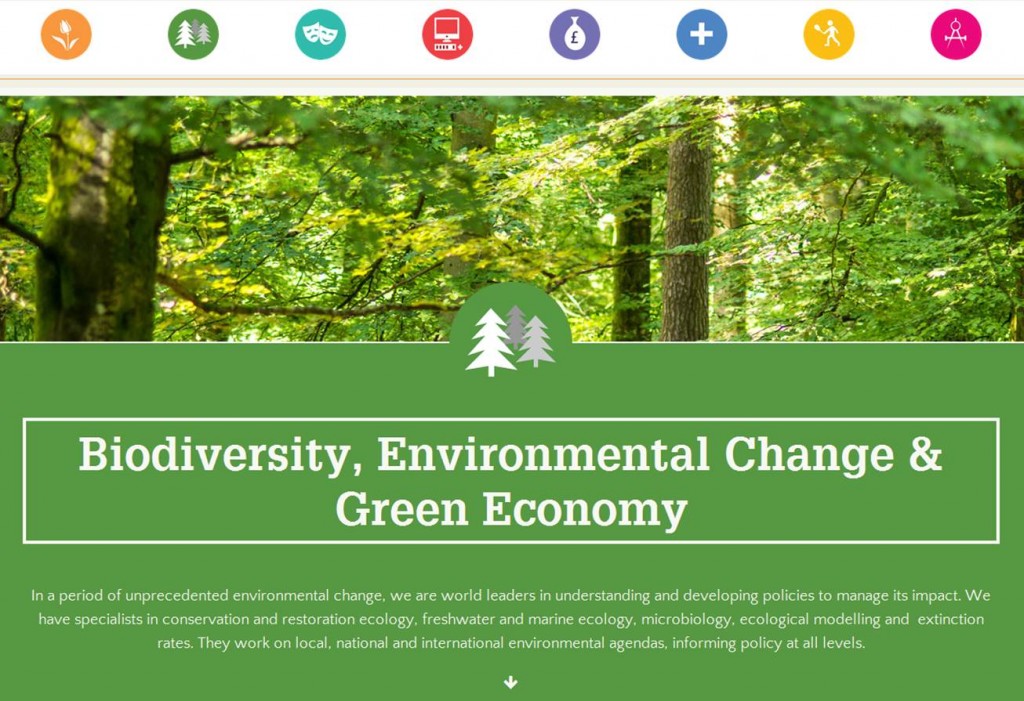
Due to popular demand we are hosting training sessions for the new research webpages together with BRIAN training.
These sessions are open to all BU academic staff, post graduate research students and those supporting researchers in their communications activity.
During the session you will learn the following:
Research Webpages
- Why BU has new research webpages
- How you can upload content to the website
- How the site can be used most effectively to maximise exposure of BU research.
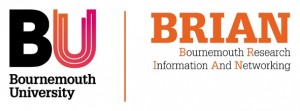
BRIAN
- What is BRIAN and why is it important
- How to set up and maintain your BRIAN profile
- How to ensure your details are correct
- How to request a photo is uploaded
- How BRIAN links to your external staff profile
To book on one of the following sessions please use the links below…
Thursday 27th March 2pm in P227 Poole House, Talbot Campus
Thursday 17th April 2pm in P227 Poole House, Talbot Campus
Wednesday 23rd April 11am in S102, Studland House, Lansdowne Campus
If you have any queries, please email Shelly Maskell on smaskell@bournemouth.ac.uk
REMINDER – Book Now! Marie Skłodowska Curie and Horizon 2020 Lunchtime Info sessions?

Marie Curie Lunchtime sessions:
20th of March at Lansdowne Campus 12-2pm
26th of March at Talbot Campus 12-2pm
Horizon 2020 session:
2nd of April at Talbot Campus 12-2pm
Remember the Marie Curie calls under FP7? Well, they are new and improved under Horizon 2020 and have been renamed and revised…
Dr Martin Pickard, the trainer says: “The new Marie Skłodowska Curie schemes within Horizon 2020 have considerable relaxed rules enabling even greater opportunities for participation; from individual research fellowships to medium term collaboration exchange. Presenting Horizon 2020 Marie Skłodowska Curie as a whole, the workshop also focuses on the opportunities for individual fellowships to highlight these opportunities and presents how to approach them to ensure a maximum chance of success (typically better than 1 in 3)”.
To learn more about the Marie Skłodowska Curie calls, please book NOW via staff development:
- Thursday 20th March, 12noon-2pm on Lansdowne Campus,
- Wednesday 26th March, 12noon-2pm on Talbot Campus
If you are already developing a Marie Skłodowska Curie proposal and would like a one-to-one Dr Martin Pickard after one of the information sessions, please contact Dianne Goodman.
Thinking about other EU schemes? To learn more about Horizon 2020 as a whole, please book NOW via staff development:
And don’t forget that BRAD offers a range of additional training opportunities which are very helpful to developing proposals for EU funding. These include:
- Research Bid Writing Workshop, Talbot Campus, Talbot Campus, 26th March, 9-11:30am
- Networking and Collaboration Opportunities, Talbot Campus, 2nd April, 2.30-4:30pm
Why not come along to all the available training sessions and boost your chances of being successfully funded by the European Union?
Open Access Event
On Wednesday 7th May, Bournemouth University will be hosting a sector-wide Open Access Event looking at the benefits of Open Access from both the green and gold perspectives, as well as, focusing on how Open Access can support the achievement of research impact.
So far confirmed external sessions are as follows: The Benefits of Open Access
Alma Swan – Director of Advocacy Programmes, SPARC Europe
Open Access and Implications for REF2020
Ben Johnson – Higher Education Policy Adviser, HEFCE
The Twitter Effect and How Social Media Can Promote Engagement with Research
Jane Tinkler – Manager, LSE Public Policy Group
Sierra Williams – Managing Editor, LSE Impact of Social Sciences Blog
The Open Access Framework
Catriona MacCallum – Advocacy Projects Manager, Public Library of Science (PLOS)
Case Study: Successful Implementation and Best Practice
Catriona Cannon – Assistant Director, Bodleian Libraries University of Oxford
There will also be sessions delivered by Bournemouth’s BURO team and Bournemouth academics talking about their own open access experiences.
Places are limited so if you’re interested, please register here!
The Benefits of Open Access
Alma Swan – Director of Advocacy Programmes, SPARC Europe
Open Access and Implications for REF2020
Ben Johnson – Higher Education Policy Adviser, HEFCE
The Twitter Effect and How Social Media Can Promote Engagement with Research
Jane Tinkler – Manager, LSE Public Policy Group
Sierra Williams – Managing Editor, LSE Impact of Social Sciences Blog
The Open Access Framework
Catriona MacCallum – Advocacy Projects Manager, Public Library of Science (PLOS)
Case Study: Successful Implementation and Best Practice
Catriona Cannon – Assistant Director, Bodleian Libraries University of Oxford
There will also be sessions delivered by Bournemouth’s BURO team and Bournemouth academics talking about their own open access experiences.
Places are limited so if you’re interested, please register here!
How To Manage Research Data
 Research Councils and funding bodies are increasingly requiring evidence of adequate and appropriate provisions for data management and curation in new grant funding applications. In July, the Digital Curation Centre (DCC) will be holding two half day workshops which will provide an introduction to research data management and curation, the range of activities and roles that should be considered when planning and implementing new projects, and an overview of tools that can assist with curation activities.
Research Councils and funding bodies are increasingly requiring evidence of adequate and appropriate provisions for data management and curation in new grant funding applications. In July, the Digital Curation Centre (DCC) will be holding two half day workshops which will provide an introduction to research data management and curation, the range of activities and roles that should be considered when planning and implementing new projects, and an overview of tools that can assist with curation activities.
The Learning Objectives of the workshops will be to:
- understand funders’ requirements for data management and sharing
- learn how research data management and curation can safeguard research outputs and increase citations
- identify the processes and activities involved in good practice for research data management
- be aware of the free services and tools available
There will be two workshops each pitched to a slightly different audience on the dates below:
- 2nd July 2014 2-5pm
- 3rd July 9-12pm
Further information can be found on the Staff Intranet. If you are interested in attending, please book on by emailing staffdevelopment@bournemouth.ac.uk
Equality and Diversity Month – Dementia Fun
Dementia in Dorset – what does this mean for you?
Tuesday 26th November (10:00am-1:00pm), – The Atrium and The Retreat, Talbot Campus
Equality and Diversity Month Bournemouth University
Bournemouth University Dementia Institute (BUDI) are hosting a community engagement day as part of the Bournemouth University Equality and Diversity month to showcase a range of their innovative projects which will bring dementia awareness to life through technology, maritime archaeology, exercise and tai chi, an art exhibition and many more fun hands-on-activities including free massages, cup cake decorating and games.
Visitors will have the chance to understand what it’s like to live with dementia through a talk by someone living with dementia and postcard stories, getting the chance to use technology which has the aim of improving the quality of life of those living with dementia, learning how to make healthy food more appetising to improve the mind and body, and experiencing how massage can reduce anxiety and enhance relaxation for both people living with dementia and their carers.
The BUDI team will be on-hand for a chat or to answer questions, and information from local organisations people living with dementia and carers will be available.
ESRC Festival of Social Science: Promoting Dignity Through Narratives of Care
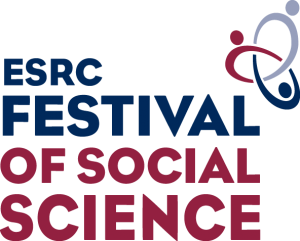 Building on their successful HEA funded seminar series event, The Power of Narrative and Stories in Enabling Learning for Professional Development in April 2013, the HSC Narrative Group was successful in attracting funding to deliver an event as part of the ESRC Festival of Social Science on Saturday 2nd November.
Building on their successful HEA funded seminar series event, The Power of Narrative and Stories in Enabling Learning for Professional Development in April 2013, the HSC Narrative Group was successful in attracting funding to deliver an event as part of the ESRC Festival of Social Science on Saturday 2nd November.
This event, Promoting Dignity through Narratives of Care, began by considering the multiple formats that a narrative approach can take with an emphasis on the need to promote dignity in health and social care, with reference to the theoretical framework developed at BU by Todres et al (2009) and Galvin and Todres (2012). The attendees included people involved in health and social care from the perspectives of receiving or providing care, education, research or a fusion of perspectives.
Participants created visual representations of their narrative to represent dignity in care. The creative activity was supported by members of the HSC Narrative Group using arts, craft and photography materials and theatrical props. Creative outputs were shared in the final session, including a play about nursing over different periods of time, poetry, two and three dimensional art work representing concepts of dignity and collages representing personal experience. The day was positively evaluated by those who attended, has led to an expanded network and will act as a stimulus for future HSC Narrative Group activity.
Some selected photos from the day can be found in the gallery below:
- Event organisers (Top row L-R) Andy Harding, Lee-Ann Fenge, Anne Quinney, (Bottom row L-R) Judith Chapman & Jen Leamon
- A participant narrative
- Participants Pauline and Eileen acting out ‘caring through the ages’ role play
- Event organisers (L-R) Judith Chapman, Maggie Hutchings, Jen Leamon & Ann Quinney
References
Galvin, K. and Todres, T. 2013. Caring and well-being: a lifeworld approach. Abingdon: Routledge.
Todres, L., Galvin, K.T., and Dahlberg, K. 2007. Lifeworld-led care: Revisiting a humanizing philosophy that integrates emerging trends. Medicine, Health Care and Philosophy, 10(1), 53-63.
EC Info Days – Interested in EC Climate and Environment Work Programme for 2014?
Interested in EC Climate and Environment Work Programme for 2014?
An InfoDay for those interested in the Horizon 2020 Societal Challenge 5: Climate Action, Environment, Resource Efficiency and Raw Materials is happening on 12th November 2013. The event aims to highlight the novelties of the 2014-2015 Work Programme and will provide guidance on the preparation and submission of proposals. This InfoDay covers only 2014 topics. A seperate InfoDay for 2015 topics will be organised at a later stage.
Although registration to attend the event is closed you can still watch this event online. Please see the agenda at the link below as there are various sessions addressing specific elements of the forthcoming Work Programme.
Further details:
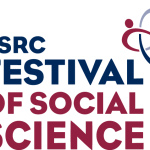
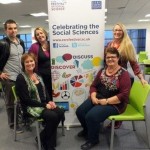

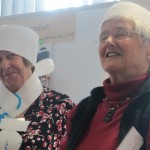













 Beyond Academia: Exploring Career Options for Early Career Researchers – Online Workshop
Beyond Academia: Exploring Career Options for Early Career Researchers – Online Workshop UKCGE Recognised Research Supervision Programme: Deadline Approaching
UKCGE Recognised Research Supervision Programme: Deadline Approaching SPROUT: From Sustainable Research to Sustainable Research Lives
SPROUT: From Sustainable Research to Sustainable Research Lives BRIAN upgrade and new look
BRIAN upgrade and new look Seeing the fruits of your labour in Bangladesh
Seeing the fruits of your labour in Bangladesh ECR Funding Open Call: Research Culture & Community Grant – Apply now
ECR Funding Open Call: Research Culture & Community Grant – Apply now ECR Funding Open Call: Research Culture & Community Grant – Application Deadline Friday 12 December
ECR Funding Open Call: Research Culture & Community Grant – Application Deadline Friday 12 December MSCA Postdoctoral Fellowships 2025 Call
MSCA Postdoctoral Fellowships 2025 Call ERC Advanced Grant 2025 Webinar
ERC Advanced Grant 2025 Webinar Update on UKRO services
Update on UKRO services European research project exploring use of ‘virtual twins’ to better manage metabolic associated fatty liver disease
European research project exploring use of ‘virtual twins’ to better manage metabolic associated fatty liver disease